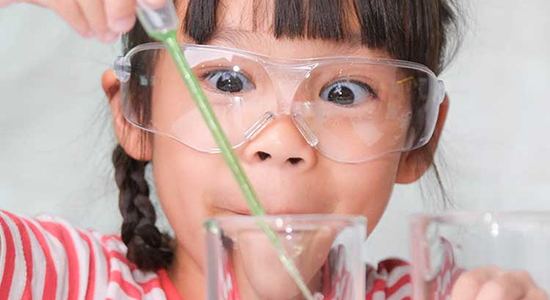by Natalie Pedersen
In 2009 I found myself sitting at a career adviser’s desk at the University of Newcastle. I was just about to complete my first out of a four-year Science degree. I had a big problem, I loved Science but I knew that my passion was to teach. I had toyed with the idea of becoming a science teacher in secondary school but I had always been drawn to early childhood and primary years. The advisor said to me “What better way to utilise your passion with science than to educate the future generation.” I completed my teaching degree and decided to focus on the early years as so much learning and development occurs in this age group and I felt that STEM could often be thought of as a one off experiment or experience when really STEM is all around us.
Whilst working with birth to 6 year olds. I have always found conversations with families to vary when it comes to learning about STEM. I find there to be a misconception around what children under 6 understand when it comes to this topic.
Below I will aim to explain how children learn about STEM throughout play as well as during experiences planned by educators and teachers.

SCIENCE
I love doing science experiments with the children. They have such wonderful ideas about what could happen with only a few items and are amazed when they see what actually happens. Planned science experiments usually come from observations I have made goals I want to achieve or children’s requests.
The children here have been learning about the water cycle. To extend on their understanding of precipitation we used water, shaving cream and blue food colouring. To represent this process, we slowly added drops of food dye (water) to the shaving cream (the cloud). We watched and waited. The children asked to add more food dye as the cloud wasn’t heavy enough. This is a concept we had discussed earlier about clouds getting heavy and then it starting to rain. Soon small drops fell from the cream into the water below. “It’s raining” they shouted.
TECHNOLOGY
Technology is something that children are now growing up with and being exposed to. When used effectively, it can open up a whole new world of learning. Technology is so much more than watching a video on You Tube or researching something on the internet.
An idea I have found is using a tablet as part of a scavenger hunt while out walking. Ask your child to take pictures of interesting things they see. Set them a goal, for example; can you find something yellow, green, blue, a number, a letter etc…
Educators can also use technology through drama by encouraging children to create their own movie. Children can be provided with dress ups and a tablet to record what they have made. This promotes teamwork, communication, role play, turn taking and imaginative skills.
ENGINEERING
Have you ever seen your child build with blocks, create a masterpiece out of recycled materials or create an obstacle course outdoors? These activities require problem solving and thinking about how and where each material is added to achieve an overall goal.
In the preschool room this year, the educators have invited children to build using blue tac and matchsticks, create a bridge using newspaper and engineer a boat to hold counting bears.
Another way to foster engineering for young children is to provide them with a table of open-ended resources. This could include pegs, string, matchsticks, sticky tape and cardboard. Give them a challenge such as “Who can make a car using these materials”. Seeing what children come up with is half the fun. They often take the learning in a completely different direction than what was planned.
MATHEMATICS
Maths is literally everywhere. Going grocery shopping; you can explore money, counting, time, and weight. One misconception about Mathematics that I have seen is that children learn by rote. This is not the case. Sing a counting song, play a card game. Uno is excellent for learning about adding and subtracting. When a child has to pick up 2 or 4 they are adding to their pile. The same when they count down the cards they have in order to win the game.
If you are waiting somewhere, why not count the cars that drive past?
When you are cooking, allow your child to explore measurement by weighing the ingredients.
I think the reason I enjoy STEM so much is because it is embedded everywhere. It is in daily life, it can be taught purposefully and learnt through play.






